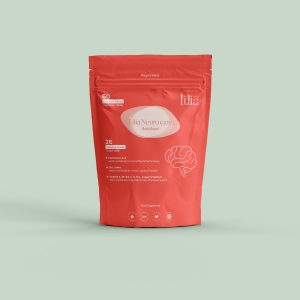جدول محتواها
Deep breathing and stress reduction have been linked for centuries, with ancient cultures practicing various breathing techniques for relaxation and healing. In today’s fast-paced world, stress has become a common part of our lives.
Fortunately, a simple yet powerful tool to combat stress is readily available: deep breathing. This article will delve into the science behind deep breathing and explore how this technique can significantly reduce stress, improve overall well-being, and provide a sense of calm amidst life’s challenges.
The Science Behind Deep Breathing and Stress
The science behind deep breathing and stress reduction is rooted in the intricate connection between our mind and body. When we experience stress, our body initiates a “fight or flight” response, causing our heart rate to increase, muscles to tense, and breathing to become shallow and rapid.
Breathing exercises for stress reduction work by activating the parasympathetic nervous system, which promotes relaxation. By taking slow, deep breaths, we signal to our bodies that it’s safe to relax, thereby reducing the physiological effects of stress. This process involves the regulation of the neurotransmitter GABA, which has a calming effect on the brain, and the release of endorphins, our body’s natural pain relievers and mood elevators.
How Deep Breathing Affects Your Body
Deep breathing acts as a powerful tool for physical and mental well-being. When you engage in a 2 minute breathing exercise for stress reduction, your body undergoes several physiological changes. Slow, deep breaths signal your body to relax, leading to a decrease in heart rate and blood pressure.
Increased oxygen flow to the brain improves cognitive function, enhances focus, and promotes a sense of calm. Additionally, deep breathing stimulates the vagus nerve, which helps regulate the body’s stress response. Regular practice of deep breathing can also boost your immune system, aid in digestion, and improve sleep quality, contributing to overall health and vitality.
Step-by-Step Guide to Deep Breathing Exercises

The 4-7-8 Breathing Technique
- 4-7-8 breathing is a simple yet effective stress reduction breathing technique. Inhale slowly through your nose for a count of 4, hold your breath for a count of 7, and exhale forcefully through your mouth for a count of 8. Repeat this cycle several times to calm your mind and body.
Diaphragmatic Breathing
- Diaphragmatic breathing, or belly breathing, is a fundamental technique in breathing exercises for stress reduction. Place one hand on your chest and the other on your belly. As you inhale, focus on expanding your belly, not your chest. Exhale slowly, drawing your belly button towards your spine.
Box Breathing
- Box breathing is a visualization technique that can be helpful for managing stress and anxiety. Imagine a square. Inhale for a count of 4, hold for 4, exhale for 4, and hold for 4. This creates a calming rhythm and can help center your thoughts.
Finding a Quiet Space
- Before starting any stress reduction breathing technique, find a quiet place where you won’t be disturbed. Sit or lie down in a comfortable position and close your eyes. This will help you focus on your breath and minimize distractions.
Consistent Practice
- Regular practice is key to reaping the benefits of breathing exercises for stress reduction. Aim to incorporate these techniques into your daily routine, even if it’s just a few minutes. Over time, you’ll notice a significant improvement in your ability to manage stress and anxiety.
Benefits of Deep Breathing for Overall Well-being
Beyond deep breathing and stress reduction, the benefits of deep breathing extend to various aspects of overall well-being. It can improve sleep quality, boost your mood, strengthen your immune system, enhance focus and concentration, and even help manage pain.
By incorporating deep breathing into your daily routine, you can experience a profound sense of calm and balance, leading to a higher quality of life.
Improved Sleep
- Deep breathing can significantly improve sleep quality. By calming the nervous system and reducing stress, deep breathing can help you fall asleep faster and enjoy more restful sleep.
Enhanced Mood
- Regular deep breathing practice has been linked to improved mood and reduced symptoms of anxiety and depression. The relaxation response triggered by deep breathing can help balance emotions and promote a sense of well-being.
Boosted Immunity
- Deep breathing can strengthen your immune system. The relaxation response associated with deep breathing helps to reduce inflammation and improve the body’s ability to fight off infections.
Increased Focus and Concentration
- Deep breathing can enhance cognitive function, including focus, concentration, and memory. By calming the mind, deep breathing allows you to be more present and productive.
Pain Management
- Deep breathing techniques have been shown to be effective in managing pain, both acute and chronic. The relaxation response triggered by deep breathing can help reduce pain perception and promote healing.
Incorporating Deep Breathing into Your Daily Routine

Incorporating breathing exercises for stress reduction into your daily routine can be as simple as taking a few minutes each day to focus on your breath. You can practice deep breathing while waiting in line, during your commute, or before bed.
Experiment with different techniques and find what works best for you. Remember, consistency is key. The more you practice deep breathing, the easier it becomes to manage stress and cultivate a sense of calm throughout your day.
Neuro Care: Calm Your Mind, Boost Your Brain

Neuro Care is an advanced brain health supplement formulated with a unique blend of 25 vitamins and minerals, including lycopene, zeaxanthin, Korean ginseng, CoQ10, and lutein. This comprehensive formula supports optimal brain health, focus, energy, and immunity.
Key benefits of Neuro Care include:
- Enhanced cognitive function: Supports normal mental performance, concentration, memory, and overall mental clarity.
- Neuroprotective effects: Protects brain cells from oxidative stress and supports the synthesis and metabolism of neurotransmitters.
- Immune system support: Strengthens the immune system with a blend of essential vitamins and minerals.
- Convenience: Easy-to-swallow chocolate-flavored tablets, suitable for vegans and vegetarians.
Lilia Neuro Care is a high-quality supplement made in the UK by leading doctors and scientists, providing a reliable and effective solution for brain health and overall well-being.
Conclusion
Incorporating deep breathing into your daily routine can be a transformative practice for overall well-being. By understanding the science behind deep breathing and stress reduction and committing to regular practice, you can effectively manage stress, improve your mood, and enhance your overall quality of life.
Remember, the benefits of deep breathing are cumulative. With consistent effort, you’ll discover a newfound sense of calm and resilience in the face of life’s challenges.
FAQs
How long does it take to see the benefits of deep breathing?
While some people may experience immediate relief, the full benefits of deep breathing often become noticeable with regular practice over several weeks. Consistency is key.
Can deep breathing cure anxiety or depression?
Deep breathing is a valuable tool for managing symptoms of anxiety and depression, but it’s not a cure. For more severe conditions, it’s important to seek professional help.
Is there a right or wrong way to deep breathe?
While there are many different techniques, the most important thing is to focus on slow, deep breaths and to find a method that feels comfortable and relaxing for you.
Can children benefit from deep breathing exercises?
Yes, children can benefit greatly from deep breathing exercises. It can help them manage stress, improve focus, and develop healthy coping mechanisms.







